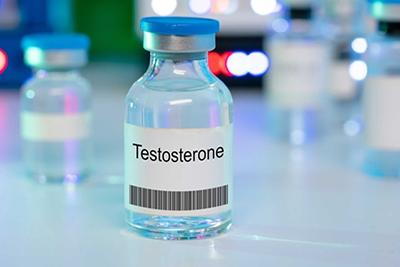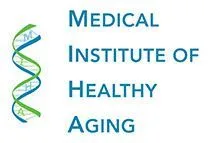The Benefits of Testosterone Therapy

- posted: Oct. 17, 2024
When you think of testosterone, you might associate it primarily with sex drive and muscle mass. However, this hormone is crucial in more than just these aspects—it also influences your heart health. Testosterone receptors are present in the heart, and visiting Dr. Paul Kim or Dr. Neesha Dave at the Medical Institute of Healthy Aging in Atherton, CA could lead to testosterone therapy that benefits your energy levels and cardiovascular well-being.
Low Testosterone and Heart Health Risks
For many men, testosterone levels begin to decline after the age of 40. This decrease can elevate cardiovascular risks, leading to several potential heart health issues.
Coronary Artery Disease (CAD)
One significant risk associated with low testosterone is coronary artery disease (CAD), which affects the arteries supplying blood to the heart. Individuals with CAD experience reduced blood flow due to plaque buildup, causing the arteries to become narrower and stiffer.
Diabetes
The American Diabetes Association (ADA) notes that men with diabetes are twice as likely to have low testosterone compared to those without this metabolic disorder. Conversely, low testosterone can increase the risk of developing diabetes. This connection arises from testosterone's role in enhancing insulin sensitivity, enabling better blood glucose control.
High blood sugar levels, particularly when poorly managed, can damage the nerves and blood vessels in the heart, significantly increasing the risk of heart disease, heart attack, or stroke.
Metabolic Syndrome
Metabolic syndrome encompasses a range of conditions that disrupt the body's ability to convert food into energy. Men with low testosterone are at a higher risk for developing metabolic syndrome, which further increases the likelihood of heart disease.
Benefits of Increased Testosterone
Increasing testosterone levels can lead to a variety of health benefits beyond just heart health. Some of these benefits include:
Improved Mood and Mental Clarity: Higher testosterone levels have been linked to better mood, reduced fatigue, and enhanced cognitive function. This can lead to improved quality of life and greater motivation in daily activities.
Enhanced Muscle Mass and Strength: Testosterone plays a key role in muscle development and maintenance. Increasing testosterone levels can help improve physical performance, increase muscle mass, and support weight management.
Better Sexual Health: Testosterone is crucial for sexual function. Higher levels can improve libido, erectile function, and overall sexual satisfaction, contributing to a healthier intimate relationship.
Increased Energy Levels: Many men report increased energy and vitality with higher testosterone levels, which can positively impact everyday activities and overall well-being.
The Role of Testosterone Therapy
Given the multiple connections between heart health and testosterone levels, testosterone therapy can be an important component of cardiovascular care, especially as you age. It's essential to note that testosterone therapy may not be suitable for everyone. Dr. Kim and Dr. Dave at the Medical Institute of Healthy Aging will thoroughly evaluate your health to determine if this treatment aligns with your specific needs.
To schedule a consultation, call our offices in Atherton at 650-779-7201, Napa at 707-266-227, and Walnut Creek, CA at 925-979-0979.

- posted: Oct. 17, 2024
When you think of testosterone, you might associate it primarily with sex drive and muscle mass. However, this hormone is crucial in more than just these aspects—it also influences your heart health. Testosterone receptors are present in the heart, and visiting Dr. Paul Kim or Dr. Neesha Dave at the Medical Institute of Healthy Aging in Atherton, CA could lead to testosterone therapy that benefits your energy levels and cardiovascular well-being.
Low Testosterone and Heart Health Risks
For many men, testosterone levels begin to decline after the age of 40. This decrease can elevate cardiovascular risks, leading to several potential heart health issues.
Coronary Artery Disease (CAD)
One significant risk associated with low testosterone is coronary artery disease (CAD), which affects the arteries supplying blood to the heart. Individuals with CAD experience reduced blood flow due to plaque buildup, causing the arteries to become narrower and stiffer.
Diabetes
The American Diabetes Association (ADA) notes that men with diabetes are twice as likely to have low testosterone compared to those without this metabolic disorder. Conversely, low testosterone can increase the risk of developing diabetes. This connection arises from testosterone's role in enhancing insulin sensitivity, enabling better blood glucose control.
High blood sugar levels, particularly when poorly managed, can damage the nerves and blood vessels in the heart, significantly increasing the risk of heart disease, heart attack, or stroke.
Metabolic Syndrome
Metabolic syndrome encompasses a range of conditions that disrupt the body's ability to convert food into energy. Men with low testosterone are at a higher risk for developing metabolic syndrome, which further increases the likelihood of heart disease.
Benefits of Increased Testosterone
Increasing testosterone levels can lead to a variety of health benefits beyond just heart health. Some of these benefits include:
Improved Mood and Mental Clarity: Higher testosterone levels have been linked to better mood, reduced fatigue, and enhanced cognitive function. This can lead to improved quality of life and greater motivation in daily activities.
Enhanced Muscle Mass and Strength: Testosterone plays a key role in muscle development and maintenance. Increasing testosterone levels can help improve physical performance, increase muscle mass, and support weight management.
Better Sexual Health: Testosterone is crucial for sexual function. Higher levels can improve libido, erectile function, and overall sexual satisfaction, contributing to a healthier intimate relationship.
Increased Energy Levels: Many men report increased energy and vitality with higher testosterone levels, which can positively impact everyday activities and overall well-being.
The Role of Testosterone Therapy
Given the multiple connections between heart health and testosterone levels, testosterone therapy can be an important component of cardiovascular care, especially as you age. It's essential to note that testosterone therapy may not be suitable for everyone. Dr. Kim and Dr. Dave at the Medical Institute of Healthy Aging will thoroughly evaluate your health to determine if this treatment aligns with your specific needs.
To schedule a consultation, call our offices in Atherton at 650-779-7201, Napa at 707-266-227, and Walnut Creek, CA at 925-979-0979.
Our Locations
Primary/Main Office
1776 Ygnacio Valley Road #204
Walnut Creek, CA 94598
